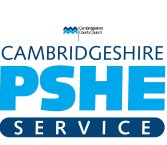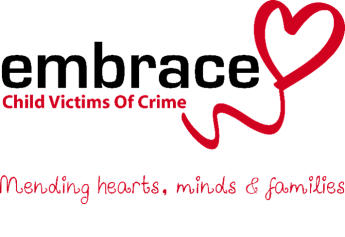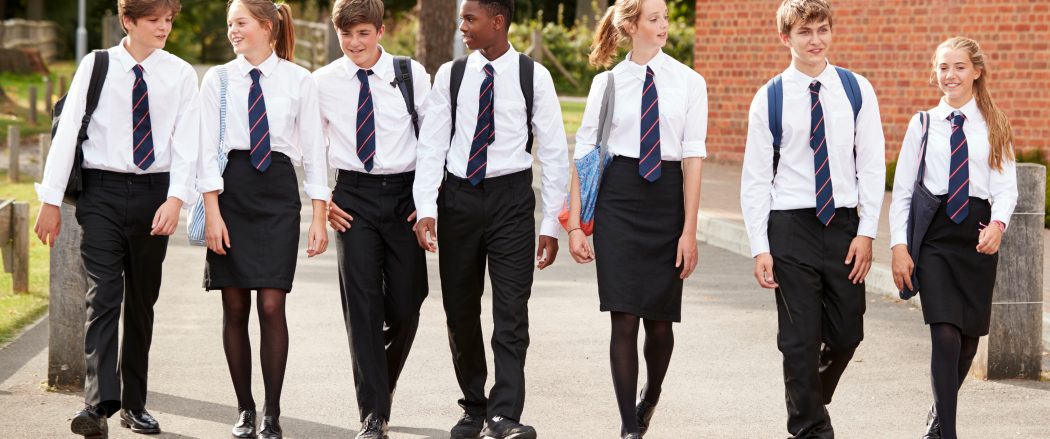To nurture the skills of resilience is key to providing young people with the ability to cope with stress, adversity, failure and challenges. Resilience is evident when young people have a greater ability to “bounce back” when faced with difficulties and achieve positive outcomes.
Resilience empowers an individual to value the importance of self-respect and self-worth, to discriminate between acceptable and unacceptable behaviour in relationships and to know when, how and to whom to seek advice when a relationship is perceived to be unhealthy – negative, disrespectful and/or harmful.
Relationships and Sex Education (RSE) is a newly statutory curriculum area which must now be delivered in all secondary schools. RSE (Link Relationships Education, Relationships and Sex Education and Health Education guidance (publishing.service.gov.uk) is often covered as part of a wider subject called PSHE (Personal Social and Health Education).
RSE is a very broad subject, which comprises learning about families, respectful relationships including friendships, online and media, being safe and intimate and sexual relationships including sexual health. Young people should learn about healthy and unhealthy relationships, focusing on experiences with family and friends both online and offline, considering the positive and negative influences. They should also learn about ways to help themselves, to help others and to ask for help from trusted adults when needed.
In many schools RSE (Relationships and Sex Education) is a topic which draws content from both the RSE and Health Education requirements. RSE often covers content about families, parental responsibility, being safe and consent, and intimate and sexual relationships and sexual health (from the RSE curriculum) and health and prevention, with a focus on personal hygiene, and changing adolescent body (from the Health Education curriculum).
Sex Education is a small subset within RSE. Each school is required to define which elements of the RSE curriculum are to be classed as Sex Education. This definition should be included in the school’s RSE policy. There is no nationally agreed definition of Sex Education for secondary schools.
Parents/carers have the right to request that their child is excused from the areas defined as Sex Education. Parents/carers do not have the right to withdraw their child from other areas of RSE or Health Education.
As with all areas of PSHE, schools should work in close partnership with families, to ensure that children are able to build healthy, respectful and caring relationships in all areas of their lives.
High quality RSE helps create safe school communities in which pupils can grow, learn, and develop positive, healthy behaviour for life. Children and young people want to be prepared for the physical and emotional changes they undergo at puberty, and young people want and need to learn about safe, healthy relationships. Older pupils frequently say that sex and relationships education was ‘too little, too late and too biological’. Ofsted reinforced this in their 2013 Not Yet Good Enough report. It is also essential in meeting schools’ safeguarding obligations – again, Ofsted states that schools must have a preventative programme helping pupils to learn about safety and risks in relationships and RSE can help you to achieve this.
The issue locally and nationally
Young people are growing up in an increasingly complex world and may be living their lives seamlessly on and offline. This presents many positive and exciting opportunities, but also challenges and risks. In this environment, young people need to know how to value themselves, be respectful of others and to be safe and healthy. They need to develop the skills to make healthy, safer choices online and offline. Also, they need to be supported in developing attitudes towards themselves and others which enable them to make positive choices from a basis of knowledge and self-awareness. The challenges which many young people face, especially relating to mental health, friendship skills and physical wellbeing are immense, but through high quality RSE, schools can support their pupils to navigate some of these challenges effectively.
Puberty. 1 in 4 girls start their periods before learning about menstruation in RSE. 38% of boys experienced ‘wet dreams’ before having learnt about them. 1 in 10 girls are unable to afford sanitary wear.
Sexual activity. Less than 1 in 3 teenagers (girls and boys) have first sex before 16. Some data suggests young people are starting sex at a later age.
Preferred sources of information. Young people cite school, parents, and health professionals as their most preferred source of information on relationships and sex. Young people cite school, parents, and health professionals as their most preferred source of information on relationships and sex.
Teenage pregnancy. Over the last 20 years the under-18 pregnancy rate has dropped by 64% but inequalities remain between LAs and individual young people. Poor school attendance, low attainment, and experience of being in care are strongly associated risk factors.
STIs. Between 15-24, young men are 3.5 times more likely and young women 7 times more likely to be diagnosed with an STI compared to over 25s
HIV. In 2019, among 15-24-year olds, there were 363 new HIV diagnoses acquired sexually. In 2019, among 15-24 -year olds, there were 363 new HIV diagnoses acquired sexually. Of these, 74% were acquired through sex between men.
Source: PHE December 2020
What is known to work
There is no prescribed way for secondary schools to manage their curriculum delivery, however for teaching to be effective the content should be broken down into themed age-appropriate units, which are revisited to build on prior learning. The units should be carefully sequenced within a planned programme or lessons.
In addition to a broad programme, evidence (link to SRE – the evidence – March 2015.pdf (sexeducationforum.org.uk) shows that teachers should have some training, information should be accurate, skills and attitudes should be considered and there should be a strong partnership with parents/carers.
Schools in Cambridgeshire and Peterborough often offer a hybrid approach to delivering the PSHE curriculum. PSHE is delivered through designated lessons with specialist teachers, on conference (off timetable) days and through a complementary assembly or tutor programme. When reviewing provision, school leaders should be mindful of the additional value students get from PSHE lessons led by a confident, well-informed teacher who enables them to interact with the content, to discuss and develop attitudes. Students value their PSHE learning more when they are given regular lessons, allowing them to revisit and consolidate prior learning. Students are enabled to apply the skills they learn in PSHE lessons to their own lives outside the classroom when they see the values and approaches from PSHE reflected in the wider school environment and modelled by the adults they meet there.
Key actions for schools to take
Secondary schools are required to have a policy on RSE. Schools must consult parents in developing and reviewing their policy. Schools should ensure that the policy meets the needs of pupils and parents/carers and reflects the community they serve. The policy must be made available to parents/carers on the school’s website. Maintained schools in Cambridgeshire and Peterborough may contact the PSHE Service (add link mail to:[email protected]) for a policy model and support.
Schools should also consult with parents/carers about the definition of Sex Education, taking into account the requirements of other statutory areas e.g. Science. Schools should ensure that that the right to withdraw their child from sex education is clearly communicated.
Schools should also communicate with families about the aims and content of RSE lessons, listening to views and taking into account the needs of all students. They should share examples of resources to exemplify age-appropriate content and methodologies.
Teachers Guidance
Guidance notes for secondary teachers on teaching Relationships and Sex Education (RSE) (February 2019)
- The aim of RSE is to give young people the information they need to help them develop healthy, nurturing relationships of all kinds, not just intimate relationships. It should enable them to know what a healthy relationship looks like and what makes a good friend, a good colleague and a successful marriage or other type of committed relationship. It should also cover contraception, developing intimate relationships and resisting pressure to have sex (and not applying pressure). It should teach what is acceptable and unacceptable behaviour in relationships. This will help pupils understand the positive effects that good relationships have on their mental wellbeing, identify when relationships are not right and understand how such situations can be managed.
- Effective RSE does not encourage early sexual experimentation. It should teach young people to understand human sexuality and to respect themselves and others. It enables young people to mature, build their confidence and self-esteem and understand the reasons for delaying sexual activity. Effective RSE also supports people, throughout life, to develop safe, fulfilling and healthy sexual relationships, at the appropriate time.
- Knowledge about safer sex and sexual health remains important to ensure that young people are equipped to make safe, informed and healthy choices as they progress through adult life. This should be delivered in a non-judgemental, factual way and allow scope for young people to ask questions in a safe environment. Many teachers use approaches such as distancing techniques, setting ground rules with the class to help manage sensitive discussion and using question boxes to allow pupils to raise issues anonymously.
- RSE should provide clear progression from what is taught in primary school in Relationships Education. Teachers should build on the foundation of Relationships Education and, as pupils grow up, at the appropriate time extend teaching to include intimate relationships. Alongside being taught about intimate relationships, pupils should also be taught about family relationships, friendships and other kinds of relationships that are an equally important part of becoming a successful and happy adult. This teaching should enable pupils to distinguish between content and experiences that exemplify healthy relationships and those that are distorted or harmful.
- Pupils should understand the benefits of healthy relationships to their mental wellbeing and self-respect. Through gaining the knowledge of what a healthy relationship is like, they can be empowered to identify when relationships are unhealthy. They should be taught that unhealthy relationships can have a lasting, negative impact on mental wellbeing.
- As in primary, secondary Relationships Education can be underpinned by a wider, deliberate cultivation and practice of resilience and character in the individual. These should include character traits such as belief in achieving goals and persevering with tasks, as well as personal attributes such as honesty, integrity, courage, humility, kindness, generosity, trustworthiness and a sense of justice, underpinned by an understanding of the importance of self-respect and self-worth. There are many ways in which secondary schools should support the development of these attributes, for example by providing planned opportunities for young people to undertake social action, active citizenship and voluntary service to others locally or more widely.
- Pupils should be taught the facts and the law about sex, sexuality, sexual health and gender identity in an age-appropriate and inclusive way. All pupils should feel that the content is relevant to them and their developing sexuality. Sexual orientation and gender identity should be explored at a timely point and in a clear, sensitive and respectful manner. When teaching about these topics, it must be recognised that young people may be discovering or understanding their sexual orientation or gender identity. There should be an equal opportunity to explore the features of stable and healthy same-sex relationships. This should be integrated appropriately into the RSE programme, rather than addressed separately or in only one lesson.
- It is recognised that there will be a range of opinions regarding RSE. The starting principle when teaching each of these must be that the applicable law should be taught in a factual way so that pupils are clear on their rights and responsibilities as citizens.
- Schools may choose to explore faith, or other perspectives, on some of these issues in other subjects such as Religious Education.
- Pupils should be well informed about the full range of perspectives and, within the law, should be well equipped to make decisions for themselves about how to live their own lives, whilst respecting the right of others to make their own decisions and hold their own beliefs. Key aspects of the law relating to sex which should be taught include the age of consent, what consent is and is not, the definitions and recognition of rape, sexual assault and harassment, and choices permitted by the law around pregnancy.
- Grooming, sexual exploitation and domestic abuse, including coercive and controlling behaviour, should also be addressed sensitively and clearly. Schools should address the physical and emotional damage caused by female genital mutilation (FGM). They should also be taught where to find support and that it is a criminal offence to perform or assist in the performance of FGM or fail to protect a person for whom you are responsible from FGM. As well as addressing this in the context of the law, pupils may also need support to recognise when relationships (including family relationships) are unhealthy or abusive (including the unacceptability of neglect, emotional, sexual and physical abuse and violence, including honour-based violence and forced marriage) and strategies to manage this or access support for oneself or others at risk. Schools should also be mindful that for pupils who are or have experienced unhealthy or unsafe relationships at home or socially, the school may have a particularly important role in being a place of consistency and safety where they can easily speak to trusted adults, report problems and find support.
- Internet safety should also be addressed. Pupils should be taught the rules and principles for keeping safe online. This will include how to recognise risks, harmful content and contact, and how and to whom to report issues. Pupils should have a strong understanding of how data is generated, collected, shared and used online, for example, how personal data is captured on social media or understanding the way that businesses may exploit the data available to them.
- Some pupils are also exposed to harmful behaviours online, and via other forms of media, which may normalise violent sexual behaviours. A focus on healthy relationships and broader Relationships Education can help young people understand acceptable behaviours in relationships.
Guidance for teachers on managing questions about RSE
Sensitive and complex issues will arise in RSE, as pupils will naturally ask questions. When spontaneous discussion arises, it should be guided in a way which reflects the stated school aims and curriculum content. Questions relating to the planned curriculum for that age group or below are often best answered to the whole class to consolidate learning. Questions which go beyond the planned curriculum may be answered in a sensitive and age-appropriate way, only to the pupil/s who have asked the question. If a member of staff is uncertain about the answer to a question, or indeed whether they wish to answer it, they should seek guidance from a school leader.
Key principles for answering students’ questions include:
- Acknowledge the question and give the message that it is okay to ask.
- Avoid leaving the child with the impression that we are flustered, as this will reduce the likelihood of them asking questions in the future.
- Check out the context of the child’s question before answering
- Buy some time, but then make sure you get back to the child.
- Check the child understands
- Ask for guidance from a colleague.
Ensure that sharing personal information by adults, pupils or their families is discouraged. Where the question indicates the need for pastoral support, the conversation should be deferred to a time outside the teaching session and other colleagues may be involved. Where a question or comment from a pupil in the classroom indicates the possibility of abuse, coercion or exploitation, teachers must pass this information to their DSL in line with Safeguarding policy.
By the end of secondary school pupils should know
HPV Vaccine Resource pack
The HPV Education Pack has been co-produced by young people and researchers from the University of Bristol and London school of Hygiene and Tropical Medicine. It is aimed at year 8 students before they have the vaccine but could support other years too. It includes lesson plans, video and activity resources and meets statutory Health Education requirements to ensure students know about:
- personal hygiene,
- germs including bacteria,
- viruses, how they spread
- treatment and prevention of infection
- antibiotics
- the facts and science relating to immunisation and vaccination.
The resource pack may be particularly useful for areas of low uptake.
Local Support

Cambridgeshire Personal, Social and Health Education (PSHE) Service
Cambridgeshire Personal, Social and Health Education (PSHE) Service The Cambridgeshire PSHE Service provides guidance, consultancy, training and resources to support and enhance the health and wellbeing of children and young people and their learning. This includes the curriculum for PSHE and Citizenship: its content, approaches to teaching and learning and monitoring and assessment. We also
Read More About Cambridgeshire Personal, Social and Health Education (PSHE) Service
Centre 33
Working with Primary and Secondary Schools Across Cambridgeshire and Peterborough Centre 33 Young Carers Project works closely with primary and secondary schools across Cambridgeshire and Peterborough to raise awareness of Young Carers and ensure that support is in place for Young Carers at your school. Centre 33 supports schools to identify a Young Carers Champion,
Read More About Centre 33
Dhiverse
Dhiverse’s mission is to provide high quality sexual health and HIV support, education and information for all. Click on the links below to find out about the full range of services available as well as to visit the website. Call:01223 508805E-mail: [email protected]
Read More About Dhiverse
Embrace Child Victims Of Crime
Helping young crime victims and witnesses recover from trauma Embrace Child Victims Of Crime is a specialist support service for young victims and witnesses to crime on behalf of the Police and Crime Commissioner for Cambridgeshire and Peterborough. The aim of the Cambridgeshire-based charity is to help children, young people, and families from all over
Read More About Embrace Child Victims Of Crime
Nessie
Nessie is commissioned by Cambridgeshire County Council to provide free support to families of children and young people who self-harm. Nessie will be offering: parent workshops across Cambridgeshire schools, in community settings and online targeted 1-1 parent support telephone and online parent support school based group support for targeted group of young people NESSie is
Read More About NessieNSPCC
Whether you’re looking for advice, or are worried about a child, the NSPCC have got a range of helplines to support you. While we understand that your school will have procedures and policies in place for safeguarding issues, we recognise that if you’re working with and supporting children and families, sometimes you might need to
Read More About NSPCC
The Conversation
The Conversation offers in person PSHE workshops covering many aspects of the PSHE curriculum including sex and relationships, mental health, self esteem and Identity and digital technology. They work with children from the beginning of primary school, right through to post-16 education across over 50 schools and colleges each year, and also offer SEND provision.
Read More About The Conversation
The Kite Trust
The Kite Trust offers tailored staff training packages for all schools and colleges on LGBTQ+ (lesbian, gay, bisexual, trans, questioning plus other related identities) inclusion and combating LGBTphobic bullying (also known as HBT – homophobic, biphobic and transphobic- bullying). We also deliver assemblies and workshops for students across the age ranges and offer support around
Read More About The Kite TrustResources
External Links
- #ASK the Awkward – Think U Know
- University of Bristol HPV Education Pack
- Better Health – Mental Well Being PHE
- Cambridgeshire Learn Together
- Embrace – Victims of Crime Domesic Violence Support
- Every Mind Matters – Building Connections
- Health for teens
- Keep your head – Relationships
- NSPCC It’s NOT OK resources
- NSPCC Promoting healthy relationships
- NSPCC Relationships for Students With Learning Disabilities 11+
- NSPCC Talk Relationships Lesson Plans
- PHSE Lessons and Resources Preventing Relationship Abuse KS3 KS4
- Plan UK
- PSHE – Developing learning skills: Helping students thrive in a new key stage
- PSHE – Friendship and bullying
- PSHE Association – Something’s Not Right’ abuse disclosure lesson plans
- PSHE NSPCC: Talk Relationships
- Reward Foundation – Love Sex and the Internet
- Sex Education Forum
- Stride Sexting and Staying Safe Lesson Plan
- Survivors UK – male rape and sexual abuse support
- Teenage Relationship Abuse – Your Best Friend Project
- The internet, relationships and you: toolkit 11-18s
- The internet, relationships & you – CEOP
- The internet, relationships and you
- The Kite Trust
- The Mix Essential Support for Under25s
- Your Best Friend



